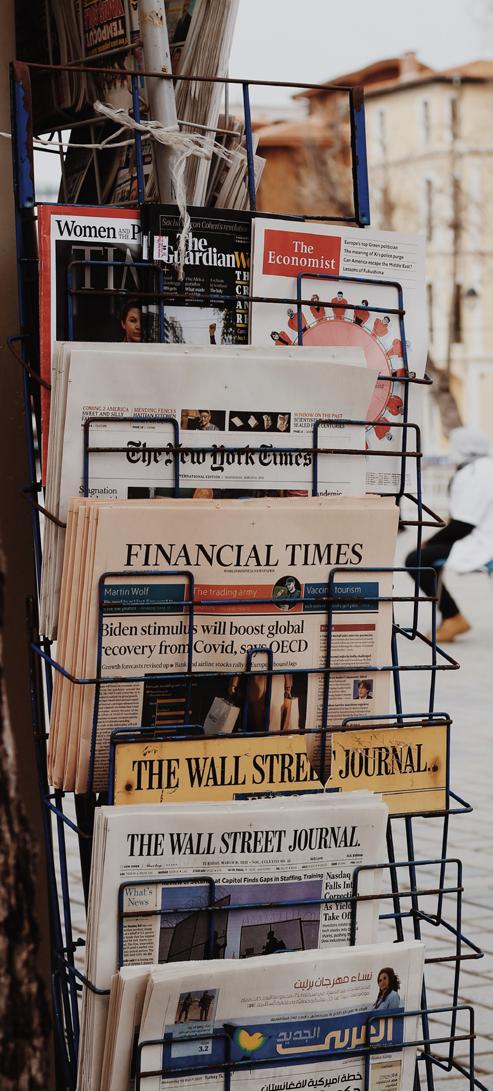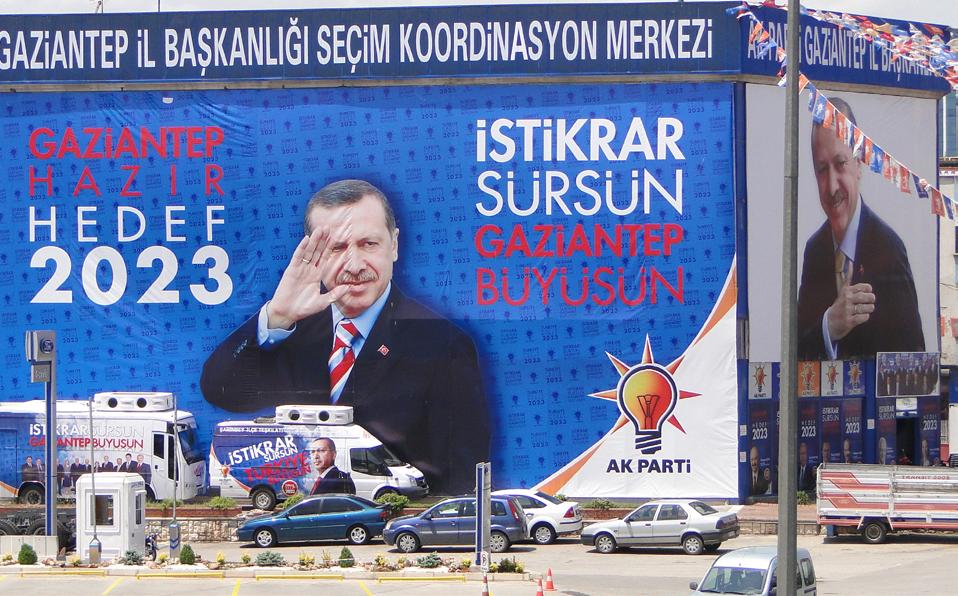CHACRDIGEST#20
The views expressed in this Digest are not those of the British Army or UK Government. This document cannot be reproduced or used in part or whole without the permission of the CHACR. www.chacr.org.uk
MAKING SENSE OF A CRAZY WEEKEND
On Saturday 24th June, the Wagner mercenary group led by Yevgeny Prigozhin took over the Russian town of Rostov Don and made a rapid push toward Moscow in apparent defiance of President Putin. The pace of events seemed so rapid and out of control that understanding the impact of the Wagner “putsch” is difficult to fully comprehend. No sooner had it started than it stopped, Prigozhin is now in Belarus, while Wagner forces have returned to barracks. There has been much speculation (perhaps too much) as to what this means for Russia’s President, the internal power structures of the country, and the wider impacts on the Ukraine conflict. In this piece, Michael Weiss interviews Estonian analyst “Karl” about the implications of the mutiny, particularly for President Putin and Russia’s armed forces. If you read one piece about weekend of 24th June, it should be this one.

THE DESTRUCTION OF THE KAKHOVKA DAM
On 6th June, a significant portion of Ukraine’s Kakhovka Dam collapsed, causing massive flooding downstream and raising concerns about potential implications for safety at the Zaporizhzhia nuclear power plant, which draws its cooling water from the Kakhovka reservoir. The precise cause of the collapse – and the potential culprit – remain undefined. However, as Joanna Hosa at the European Council on Foreign Relations writes, the dam collapse could provide momentum for a more significant discussion about ecocide as an international crime. If and when the war in Ukraine comes to an end, the country will not just face an enormous reconstruction challenge, but will also be confronted with vast environmental destruction – which will also raise questions about accountability.
HOW DANGEROUS IS THE ZAPORIZHZHIA NUCLEAR PLANT?

The problem of nuclear safety in Ukraine is not new. The country experienced the world’s worst ever nuclear accident in 1986 following the explosion of reactor 4 at the Chernobyl power plant. It is therefore understandable that there are serious concerns about the safety of other plants across the country, particularly Zaporizhzhia which is close to the front line. The plant has experienced several attacks over the past two years, and faced disruption to its power and cooling infrastructure. This article by Chatham House is a must-read, it explains clearly why Zaporizhzhia’s reactors are far safer than Chernobyl’s, but also explains that there are still risks – particularly to any spent fuel sitting in cooling ponds. If such cooling facilities are disrupted there is a high risk of overheating and spreading of radiation. While we are not looking at a repeat of 1986, it could be highly damaging to the surrounding environment.
RUSSIA’S UNDERSEA CAPABILITIES
As a result of the war in Ukraine there has been a tendency to focus heavily on Russia’s land component. This is understandable but has led to a lack of discussion about Russian wider military power, particularly in the maritime space. In this excellent long-read, Mark Galeotti discusses Russia’s maritime capacity, which will be especially important in the future if Russia wishes to project any power beyond its borders. Galeotti discusses Russian capabilities which are well short of the US and China, but still substantial, and importantly the strategic doctrines which govern Russian submarine warfare. Of particular concern is Russia’s threat to undersea communications systems, in which there have been substantial upgrades to its capabilities over the past decade.
In recent years, many countries across the Arab world have either reinstated compulsory military service or introduced it for the first time. Half a century ago, the Gulf Arab monarchies were particularly hesitant to let their militaries become major national institutions whose status could one day rival that of the royal families. Today, they instead seem to regard their armed forces as potential instruments to (re)build a national identity. The security situation in the region –and questions about the continued commitment of the US to regional security, in particular – also play a role. The Italian Institute for International Political Studies has published a highly informative series of articles looking at conscription in the Arab world from different angles and offering a few case studies, including Tunisia, Morocco, Iraq and the Gulf monarchies.

GERMANY’S FIRST NATIONAL SECURITY STRATEGY
After months of wrangling amongst government coalition partners and ministries, Germany has finally published its long-awaited –first-ever – National Security Strategy. Similar to the UK’s Integrated Review, Berlin is taking a very broad approach to security – and stressing the need for ‘integration’ throughout the document. The strategy itself is worth reading, but for a much shorter and pithier assessment, European Council on Foreign Relations analyst Ulrike Franke’s Twitter thread, written as she goes through the strategy from top to bottom, is a great alternative.
WHAT IS NEXT FOR FRANCE IN AFRICA
France’s recent ignominious withdrawal from Mali appears to be part of a wider crisis in the country’s relationship with what was once known as Francafrique – former French African colonies with which Paris retained exceptionally close relations even after their independence. Today, Russia and China seem to be in the ascendancy across Africa, and even the UK, US and other Western states are making inroads in countries once regarded as being within the French orbit. A recent episode by The Red Line podcast, featuring expert voices such as Catherine Gegout, Colby Connelly and Alex Vines, provides an excellent overview of the various dimensions of France’s relationship with Africa, when and how things have started to change, and what – if anything – Paris can do to remain a significant player on the continent.
US AND CHINA: TENSE ENGAGEMENT
In early June, the International Institute for Strategic Studies hosted its annual Shangri-La Dialogue in Singapore. The big story emerging from the conference was one of ever-increasing US-Chinese tensions, with both Washington and Beijing’s representatives taking strong positions in their respective appearances. This episode of IISS’ Sounds Strategic podcast summarises the proceedings and features reflections from several senior fellows. Just two weeks later, US Secretary of State Antony Blinken met a number of senior Chinese leaders – including, surprisingly, President Xi Jinping himself – during a two-day visit to Beijing. The tone of these talks seemed to be much more pragmatic, although renewing a US-Chinese military dialogue does not seem to be on the cards yet. In this article, experts from the Atlantic Council reflect on Blinken’s visit.

NEWS STORIES TO WATCH OUT FOR

As the war in Ukraine and its multi-dimensional repercussions continue to dominate headlines, here are some other topics to keep an eye on:
In mid-June, news emerged that China is planning to establish a military training facility in Cuba
Uganda is reeling after assailants belonging to a local affiliate of Daesh carried out a massacre at a boarding school killing at least 42 students and teachers in mid-June.
After the Malian government demanded the withdrawal of MINUSMA troops, the US government is calling for a ‘responsible drawdown’ of the UN peacekeeping mission in the country.
Australia has reiterated its intention to support Taiwan in the event of a Chinese attack on the island.
China and Pakistan have signed an agreement for a new $4.8 billion nuclear power plant.
More than 500 people are feared to have died in the latest sinking of an overcrowded ship carrying migrants and refugees from Libya to Europe.
With President Narendra Modi expected in Washington for a state visit in late June, US and Indian defence ties are becoming closer
ERDOGAN STAYS – IMPLICATIONS FOR TURKISH FOREIGN POLICY
In what was ultimately a relatively comfortable victory, Recep Tayyip Erdogan has won another term as President of Turkey. This raises a number of questions – about the future of Turkey’s democracy, about Turkey’s role in NATO and future relationship with Europe, about Turkey’s ties with Russia, China and other states the West is less comfortable with than Ankara, and about Turkey’s policy in the Middle East. This podcast episode from the German Institute for International and Security Affairs, featuring Hurcan Asli Aksoy and Salim Cevik, offers a useful overview of events, as well as a take on what the election result means for Europe. At the Qatar-based Middle East Council on Global Affairs, Galip Dalay –who spends a lot of time in the UK – offers his thoughts in the form of an interview discussing what may lay ahead for both Turkish domestic and foreign policy.

JUST-IN-TIME NOT FIT FOR PURPOSE
The coronavirus pandemic has put a question mark over the long-term viability and sustainability of just-in-time supply chains. In the UK, Brexit has further reinforced this; and growing global competition and the increasing use of sanctions are also pushing governments and businesses around the world to revisit their procurement activities. Robert Wall, editor of the International Institute for Strategic Studies’ flagship Military Balance, argues that the war in Ukraine has also highlighted the need to revisit just-in-time supply chains for the defence industry.

WHY DID THE TITAN SUB IMPLODE?
Many of you will have been following the story of OceanGate’s Titan sub, which imploded around 90 minutes into its descent to the Titanic on 18th June killing five, including OceanGate CEO Stockton Rush. The press has been overly focused on issues such as the use of a Logitech game controller for steering and the use of old pipes for ballast, however, this doesn’t fully explain what went wrong. There are some extremely good analyses of what is required for repeated diving at extreme depths and why the Titan did not meet those requirements. If you have a spare 20 minutes and are not conversant in science, we highly recommend this video by Megaprojects, which explains the issues in considerable detail but in an accessible way. For those who want to go a step further into the detailed construction problems of the Titan, this 30-minute video by Oceanliner Designs is for you.


